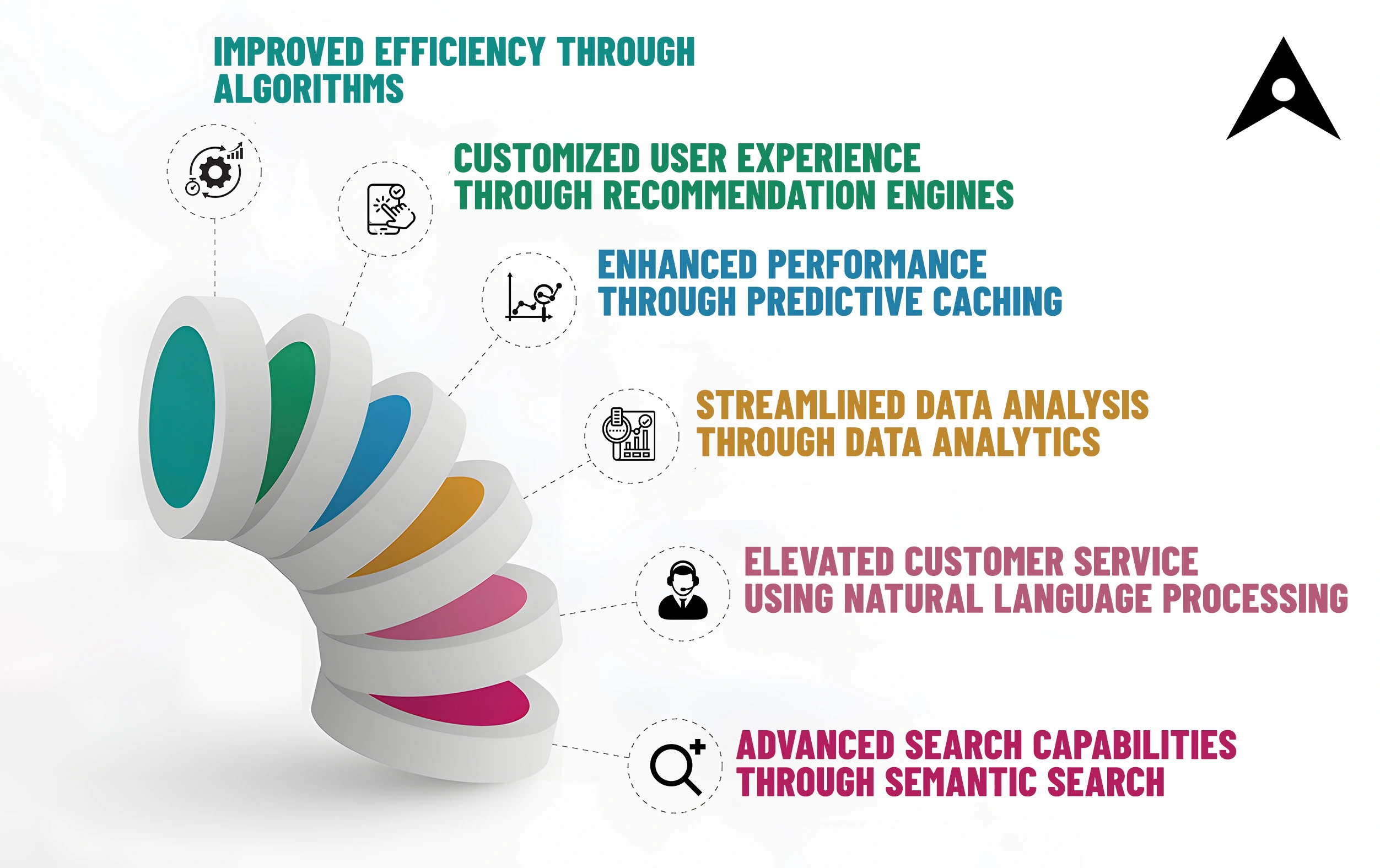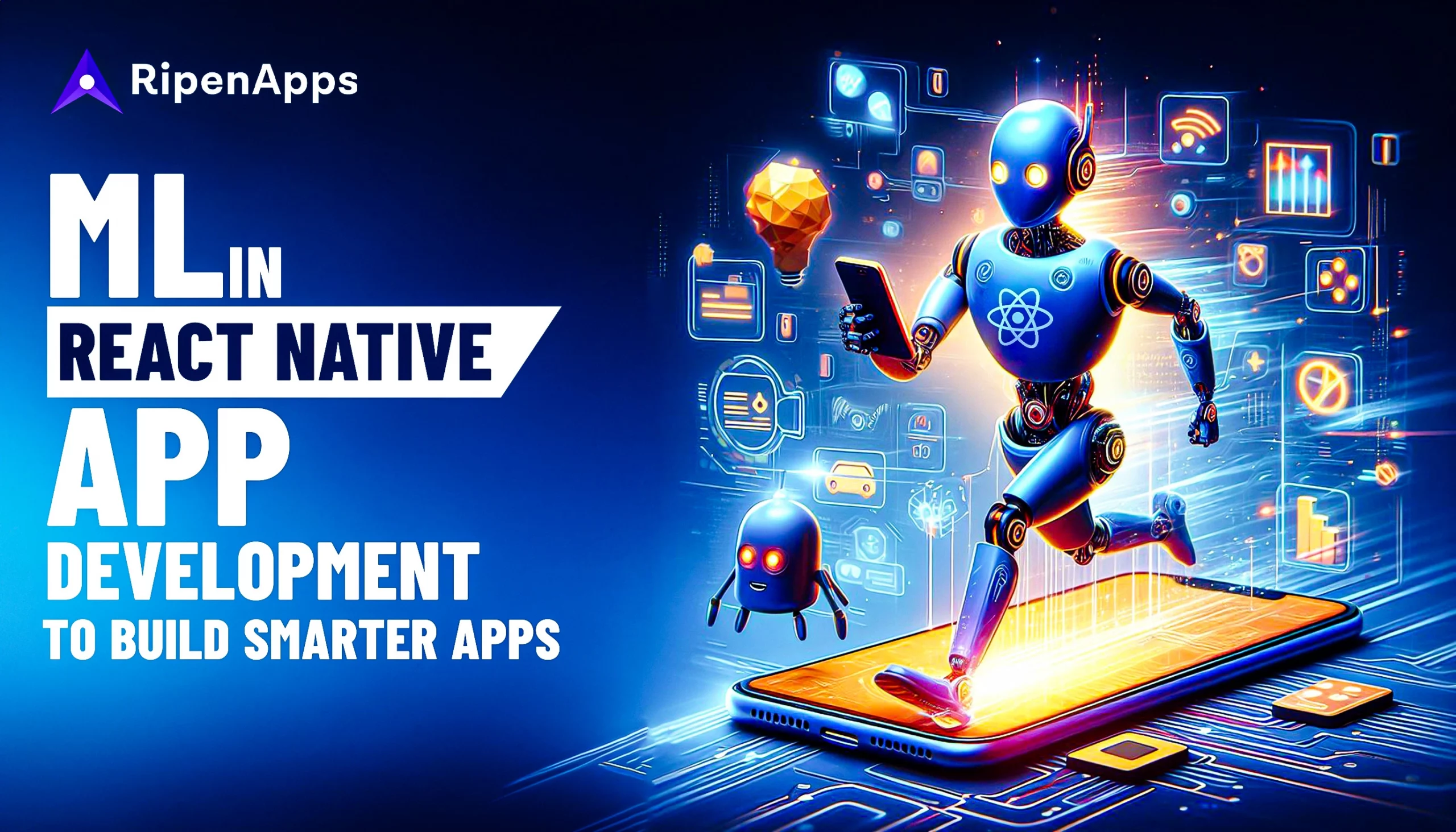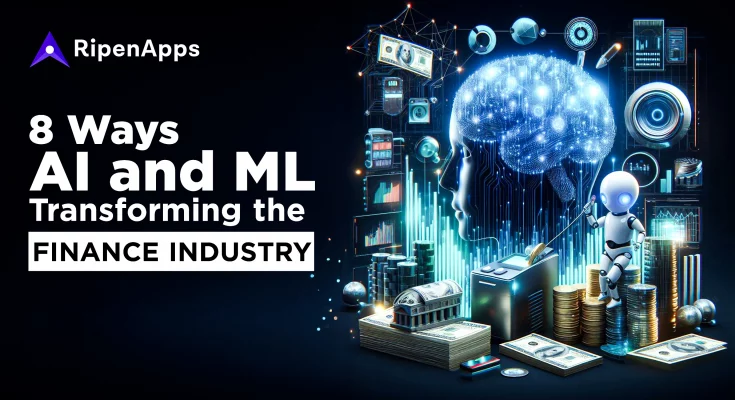From established Fortune 500 companies to hot new startups, thousands of apps are running on React Native Technology. With this, it is clear that businesses targeting app development are picking React Native as their preferred technology. That is because React Native unlocks a wide variety of benefits to businesses ranging from smaller app sizes to faster performance. But, now a new problem arises- “How to make smarter apps with React Native app development”
The solution to build smart apps is leveraging machine learning in React Native app development. If you are still confused about how leveraging machine learning in React native app development can deliver your business long-term benefits, this blog is for you.
Table of Contents
Benefits of Incorporating Machine Learning in React Native App Development
When you leverage Machine Learning in React Native app development, you unlock diverse benefits that have strong potential to make your business futureproof.

1. Improved Efficiency Through Automation Algorithms
Businesses strive to streamline their operations and maximize efficiency. One effective way to achieve this is through the automation of tasks using machine learning technology. By integrating machine learning in React Native app development, you unlock the automation of repetitive tasks for your app.
For example, in the retail industry, machine learning can automate inventory management, predict demand patterns, and optimize stock levels. Retail industry automation will grow by a CAGR of 11.23% between 2022 and 2027. This is because this not only saves time and effort but also ensures that products are available when customers need them, leading to a smarter app.
When it comes to implementing intelligent automation enterprise business owners often face challenges and complexities. Here is our blog to navigate how to get started with intelligent automation in detail
2. Customized User Experience Through Recommendation Engines
Providing a customized user experience in mobile apps is crucial for attracting and retaining customers. Machine learning plays a key role in enabling businesses to prepare customized app experiences for individual users based on their preferences and behaviors.
In music apps, you can see the use of recommendation engines (machine learning tech) where businesses analyze a user’s listening history and recommend new songs or playlists based on their musical tastes.
Similarly, an e-commerce app can personalize product recommendations based on a user’s browsing and purchase history. Nearly 56% of consumers become recursive buyers if an eCommerce business applies machine learning in their app.
3. Enhanced Performance Through Predictive Caching
For every app, performance is a paramount factor. Users expect apps to be fast, responsive, and reliable, regardless of the complexity of the underlying processes. Machine learning algorithms can be instrumental in optimizing app performance and responsiveness, ensuring a seamless user experience.
An example of a performance-based machine learning model is predictive caching. By analyzing user behavior and usage patterns, machine learning algorithms can anticipate which resources or data will be needed next and proactively cache them, reducing latency and improving response times.
4. Streamlined Data Analysis Through Data Analytics
Data is the lifeblood of modern businesses, providing valuable insights that drive decision-making and strategy formulation. However, the massive volume and complexity of data generated by mobile apps can make traditional data analysis techniques impractical.
Machine learning-powered analytics offer a solution to this challenge by enabling businesses to extract valuable insights from large and diverse datasets quickly and efficiently. From analyzing complex data structures to identifying patterns, trends, and correlations, machine learning in react native can easily tackle the data.
Take the example of healthcare apps where machine learning algorithms can analyze patient data to identify risk factors for certain diseases, predict treatment outcomes, and recommend personalized treatment plans. Similarly, in a financial app, machine learning can analyze transaction data to detect fraudulent activities, identify market trends, and optimize investment strategies.
5. Elevated Customer Service using Natural Language Processing
Exceptional customer service can build and maintain customer loyalty. Machine learning can elevate customer service through the implementation of chatbots and virtual assistants. By leveraging natural language processing, businesses can develop intelligent chatbots that can interact with users in real time and resolve issues autonomously.
6. Advanced Search Capabilities Through Semantic Search
Users expect apps to provide advanced search capabilities that enable them to find relevant content quickly and easily. Machine learning can empower your app by enhancing user navigation, and content discovery to meet user needs.
Techniques like semantic search understand the context and intent behind user queries to deliver more accurate and relevant results. Further, you can achieve personalized search results, prioritize relevant content, and filter out irrelevant or low-quality results.
Top React Native Apps Leveraging Machine Learning to Unlock Business Growth
We would like to present some real-life examples of top React native apps that have leveraged machine learning and unlocked growth. We are sure you know these names since they are also some of the biggest tech giants in the market.
Facebook’s mobile app utilizes React Native for its development. It also fuses Machine learning algorithms to power various features, such as personalized content recommendations, facial recognition for photo tagging, and sentiment analysis for post reactions.
For a long time, Facebook has been investing heavily in enhancing its machine learning capabilities to improve user engagement and relevance, resulting in a large-scale expansion and functionalities. You can even notice Facebook has excelled in mobile app localization through the power of machine learning
Instagram, owned by Meta, also employs React Native for its mobile app development. Lately, it has fused machine learning algorithms to enhance user experiences through features like image recognition for content discovery, personalized feed recommendations, and automated content moderation.
Read Also: Top React Native App Development Companies
Talking about growth, Instagram is one of the most popular social networking sites in the world as it offers custom and relevant content to its users. According to Backlinko, 40.4% of the world’s 4.95 billion active social media users access Instagram regularly.
Airbnb
Airbnb adopted React Native for parts of its mobile app development. Machine learning is employed for dynamic pricing algorithms, personalized search recommendations, and fraud detection to ensure user safety. With this, Airbnb has efficiently addressed the new challenges and opportunities in the hospitality industry, driving growth through improved user experiences, enhanced trust, and expanded market reach.
Uber Eats
Uber Eats utilizes React Native for building its cross-platform mobile app. Machine learning algorithms optimize delivery routes, estimate delivery times accurately, and personalize restaurant recommendations based on user preferences and historical data.
For a long time now, Uber Eats has continually refined its machine-learning models to meet the growing demand for efficient food delivery services, resulting in increased customer satisfaction. Recently, Uber Eats has announced a partnership with a Nvidia-owned startup to deploy delivery robots which is an application of machine learning.
Pinterest employs React Native for its mobile app development and has fused machine learning algorithms. These algorithms empower content recommendations, visual search for discovering similar images, and personalized user experiences tailored to individual interests. The machine learning approach has helped Pinterest to drive user engagement and content discovery, leading to sustained growth in user acquisition, retention, and monetization.
Skype
Finally take the example of Skype which also has used React Native for its mobile app development, providing users with a seamless cross-platform experience. With Machine learning technologies, Skype has enhanced features like real-time translation during video calls, background blur for privacy, and intelligent chatbot interactions.
Skype’s machine-learning capabilities continue to evolve, enabling new features and functionalities that drive user adoption. Microsoft has integrated Bing AI in Skype to showcase how intelligent algorithms can play an intelligent assistant role for users.
Looking to Leverage the Power of Machine Learning with React Native App Development?
We specialize in leveraging cutting-edge machine learning algorithms to create innovative and intelligent mobile applications. You can cater to your unique needs of the business and users seamlessly with us.
Whether you’re looking to automate tasks, personalize user experiences, or optimize app performance, we have dedicated mobile app developers and experience to turn your vision into reality. So, why not take the next step towards building smarter apps by leveraging machine learning in React Native app development now?











 India
India USA
USA Australia
Australia Canada
Canada UK
UK UAE
UAE